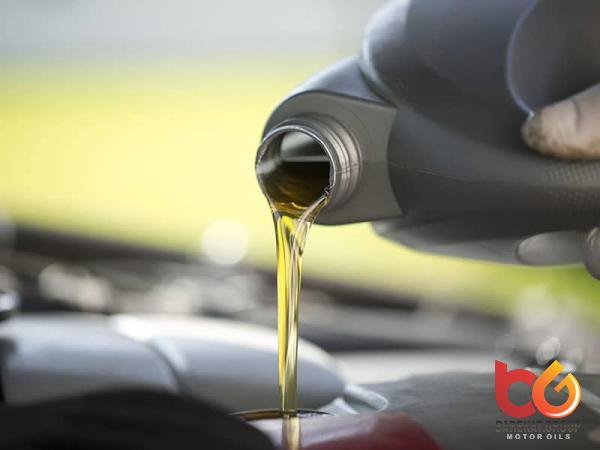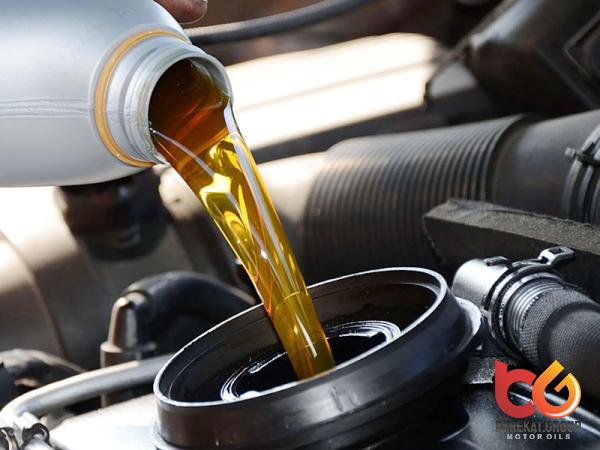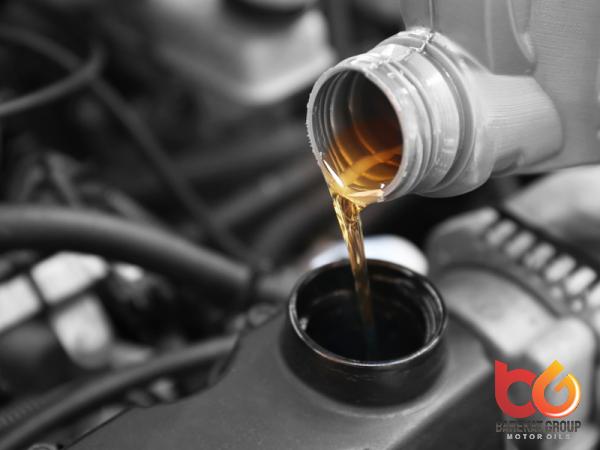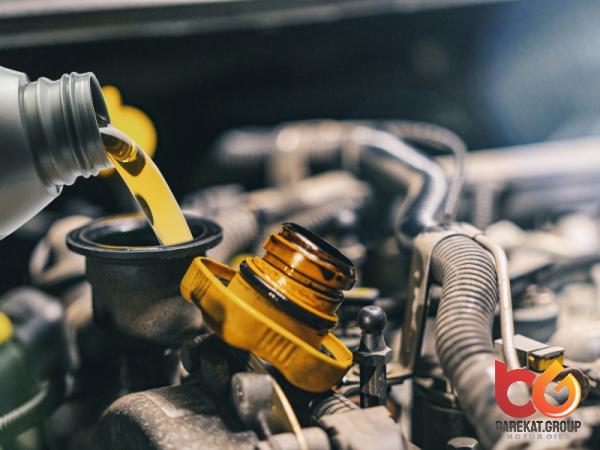Understanding its Importance for Effective Engine Performance and Protection Introduction: Engine oil zinc, also known as zinc dialkyldithiophosphate (ZDDP), is a vital component in automotive lubricants. It plays a crucial role in protecting the engine’s moving parts and reducing wear and tear, ensuring optimum performance and extending the engine’s lifespan. This article aims to provide a comprehensive summary of engine oil zinc, its significance, benefits, and considerations. Understanding Engine Oil Zinc: 1. Composition and Functionality: – Engine oil zinc is commonly derived from the chemical compound called ZDDP, which contains both zinc and phosphorus. – It functions as an anti-wear additive, creating a protective film between the metal surfaces of engine components. – When the engine is running, the heat and pressure cause the zinc and phosphorus compounds to form a chemically active layer on the metal surfaces, thus reducing friction and wear. 2. Benefits of Engine Oil Zinc: – Anti-Wear Protection: Engine oil zinc reduces metal-to-metal contact during startup, preventing premature wear and extending the engine’s lifespan. – Oxidation and Corrosion Resistance: Zinc plays a crucial role in inhibiting the oxidation process, as well as protecting metal surfaces against corrosion caused by acids and moisture. – Compatibility with Older Engines: Engine oil zinc is especially beneficial for older engines that have flat tappet camshafts, as it provides additional lubrication and protection to these components. Considerations and Controversies: 1. Catalytic Converter Interference: – It has been theorized that excessive levels of phosphorus in engine oil zinc could potentially harm catalytic converters by depositing a coating on the catalyst, reducing its effectiveness. – However, modern catalytic converters are designed to handle small amounts of phosphorus without significant issues. Therefore, engine oil zinc formulated to meet current industry standards should not pose a problem.
Engine oil
 2. Modern Engine Design and Zinc Reduction: – In recent years, automakers have been transitioning to newer engine designs with stricter emissions standards and advanced technologies, such as turbocharging and direct injection. – These modern engines often require specialized lubricants that contain lower levels of zinc due to the potential impact on emissions control systems. – While the reduction in zinc levels may not directly affect engine protection in modern vehicles, it is crucial to select the appropriate oil that adheres to the manufacturer’s recommendations. 3. Aftermarket Additives and Zinc Boosters: – Some automotive enthusiasts and drivers with older vehicles may opt for aftermarket oil additives or zinc boosters to increase the levels of engine oil zinc. – Although these products may provide additional wear protection, it is essential to exercise caution and carefully follow the instructions, as excessive levels of zinc can lead to detrimental engine issues. Industry Recommendations and Regulation: 1. API Service Categories: – The American Petroleum Institute (API) establishes standards for engine oils by defining specific performance criteria and limitations. – The current API Service Categories, such as SN, SN Plus, CK-4, and FA-4, consider the specific needs of modern engines while ensuring appropriate levels of engine oil zinc for effective lubrication and protection. 2. OEM Specifications: – Original Equipment Manufacturers (OEMs) provide detailed recommendations for engine oil specifications to ensure optimal performance and protection of their engines. – It is crucial to follow the OEM specifications and use the recommended oil viscosity and additive levels for a particular engine model.
2. Modern Engine Design and Zinc Reduction: – In recent years, automakers have been transitioning to newer engine designs with stricter emissions standards and advanced technologies, such as turbocharging and direct injection. – These modern engines often require specialized lubricants that contain lower levels of zinc due to the potential impact on emissions control systems. – While the reduction in zinc levels may not directly affect engine protection in modern vehicles, it is crucial to select the appropriate oil that adheres to the manufacturer’s recommendations. 3. Aftermarket Additives and Zinc Boosters: – Some automotive enthusiasts and drivers with older vehicles may opt for aftermarket oil additives or zinc boosters to increase the levels of engine oil zinc. – Although these products may provide additional wear protection, it is essential to exercise caution and carefully follow the instructions, as excessive levels of zinc can lead to detrimental engine issues. Industry Recommendations and Regulation: 1. API Service Categories: – The American Petroleum Institute (API) establishes standards for engine oils by defining specific performance criteria and limitations. – The current API Service Categories, such as SN, SN Plus, CK-4, and FA-4, consider the specific needs of modern engines while ensuring appropriate levels of engine oil zinc for effective lubrication and protection. 2. OEM Specifications: – Original Equipment Manufacturers (OEMs) provide detailed recommendations for engine oil specifications to ensure optimal performance and protection of their engines. – It is crucial to follow the OEM specifications and use the recommended oil viscosity and additive levels for a particular engine model.
Specifications of Engine oil
 Conclusion: Engine oil zinc, in the form of ZDDP, remains a critical component in automotive lubricants for its anti-wear properties and protection against oxidation and corrosion. While newer engine designs and emissions control systems have necessitated reduced zinc levels in lubricants, it is essential to adhere to manufacturer recommendations to ensure the desired level of engine protection. Understanding the benefits and considerations surrounding engine oil zinc empowers vehicle owners to make informed decisions regarding lubricant choices, enhancing engine performance and longevity.Title: Engine Oil Zinc: Understanding its Importance for Effective Engine Performance and Protection Introduction: Engine oil zinc, also known as zinc dialkyldithiophosphate (ZDDP), is a vital component in automotive lubricants. It plays a crucial role in protecting the engine’s moving parts and reducing wear and tear, ensuring optimum performance and extending the engine’s lifespan. This article aims to provide a comprehensive understanding of engine oil zinc, its significance, benefits, and considerations and why it is crucial for businesses in the automotive industry to include it in their product offerings. 1. The Importance of Engine Oil Zinc for Automotive Businesses: As automotive businesses strive to provide reliable and efficient solutions, including engine oil products with an adequate level of zinc becomes crucial. By offering engine oils that contain the appropriate levels of engine oil zinc, businesses can: – Enhance Engine Protection: Zinc provides anti-wear protection, reducing friction between metal surfaces and preventing premature wear. Businesses that prioritize engine protection through zinc-rich lubricants can build a reputation for quality and reliability. – Increase Engine Lifespan: Effective engine oil zinc additives form a chemically active layer on metal surfaces, reducing wear and extending the engine’s lifespan.
Conclusion: Engine oil zinc, in the form of ZDDP, remains a critical component in automotive lubricants for its anti-wear properties and protection against oxidation and corrosion. While newer engine designs and emissions control systems have necessitated reduced zinc levels in lubricants, it is essential to adhere to manufacturer recommendations to ensure the desired level of engine protection. Understanding the benefits and considerations surrounding engine oil zinc empowers vehicle owners to make informed decisions regarding lubricant choices, enhancing engine performance and longevity.Title: Engine Oil Zinc: Understanding its Importance for Effective Engine Performance and Protection Introduction: Engine oil zinc, also known as zinc dialkyldithiophosphate (ZDDP), is a vital component in automotive lubricants. It plays a crucial role in protecting the engine’s moving parts and reducing wear and tear, ensuring optimum performance and extending the engine’s lifespan. This article aims to provide a comprehensive understanding of engine oil zinc, its significance, benefits, and considerations and why it is crucial for businesses in the automotive industry to include it in their product offerings. 1. The Importance of Engine Oil Zinc for Automotive Businesses: As automotive businesses strive to provide reliable and efficient solutions, including engine oil products with an adequate level of zinc becomes crucial. By offering engine oils that contain the appropriate levels of engine oil zinc, businesses can: – Enhance Engine Protection: Zinc provides anti-wear protection, reducing friction between metal surfaces and preventing premature wear. Businesses that prioritize engine protection through zinc-rich lubricants can build a reputation for quality and reliability. – Increase Engine Lifespan: Effective engine oil zinc additives form a chemically active layer on metal surfaces, reducing wear and extending the engine’s lifespan.
Buy Engine oil
 Businesses can highlight the longevity benefits of their engine oils, attracting customers looking to prolong their vehicle’s engine life. 2. Meeting Modern Engine Requirements: With the rise of stricter emissions standards and advanced engine technologies, modern engines require engine oils that comply with specific guidelines. Businesses in the automotive industry can succeed by: – Adapting to Lower Zinc Levels: Many newer engine designs necessitate lower levels of zinc to avoid potential interference with emissions control systems. Businesses should invest in research and development to formulate engine oils that meet these requirements while still providing optimal engine protection. – Collaborating with OEMs: Original Equipment Manufacturers (OEMs) play a significant role in establishing engine oil specifications for their vehicles. By collaborating with OEMs, automotive businesses can develop specialized lubricants that align with their recommended additives and viscosity levels. 3. Managing Catalytic Converter Interference Concerns: While excessive phosphorus levels in engine oil zinc have been associated with catalytic converter interference, automotive businesses can address this concern through: – Formulation Expertise: By utilizing the knowledge and expertise of chemical engineers and lubricant specialists, businesses can develop engine oil zinc formulations that minimize the risk of catalytic converter interference. – Compliance with Industry Standards: Following the American Petroleum Institute (API) Service Categories ensures that the engine oil zinc levels are within acceptable limits, reducing the chances of any adverse impact on emissions control systems. 4. Educating Consumers and Automotive Professionals: To stand out in a competitive market, automotive businesses should emphasize consumer education and professional training programs that highlight: – Engine Lubrication Basics: Educating consumers about the importance of engine oil zinc in protecting their engines can help build trust and position businesses as knowledgeable industry leaders. –
Businesses can highlight the longevity benefits of their engine oils, attracting customers looking to prolong their vehicle’s engine life. 2. Meeting Modern Engine Requirements: With the rise of stricter emissions standards and advanced engine technologies, modern engines require engine oils that comply with specific guidelines. Businesses in the automotive industry can succeed by: – Adapting to Lower Zinc Levels: Many newer engine designs necessitate lower levels of zinc to avoid potential interference with emissions control systems. Businesses should invest in research and development to formulate engine oils that meet these requirements while still providing optimal engine protection. – Collaborating with OEMs: Original Equipment Manufacturers (OEMs) play a significant role in establishing engine oil specifications for their vehicles. By collaborating with OEMs, automotive businesses can develop specialized lubricants that align with their recommended additives and viscosity levels. 3. Managing Catalytic Converter Interference Concerns: While excessive phosphorus levels in engine oil zinc have been associated with catalytic converter interference, automotive businesses can address this concern through: – Formulation Expertise: By utilizing the knowledge and expertise of chemical engineers and lubricant specialists, businesses can develop engine oil zinc formulations that minimize the risk of catalytic converter interference. – Compliance with Industry Standards: Following the American Petroleum Institute (API) Service Categories ensures that the engine oil zinc levels are within acceptable limits, reducing the chances of any adverse impact on emissions control systems. 4. Educating Consumers and Automotive Professionals: To stand out in a competitive market, automotive businesses should emphasize consumer education and professional training programs that highlight: – Engine Lubrication Basics: Educating consumers about the importance of engine oil zinc in protecting their engines can help build trust and position businesses as knowledgeable industry leaders. –
Engine oil + buy and sell
 Proper Oil Selection: Offering support and guidance to consumers and professionals in selecting the most suitable engine oil, considering engine type, age, and manufacturer recommendations, showcases a commitment to customer satisfaction and long-term engine health. 5. Aftermarket Products and Zinc Boosters: While some consumers may opt for aftermarket products or zinc boosters to increase engine oil zinc levels, businesses should provide clear guidance on their usage to ensure: – Proper Dosage: Informing consumers about the optimal dosage of aftermarket additives or zinc boosters helps maintain the right balance of zinc without risking engine damage or performance issues. – Compatibility with OEM Recommendations: Recommending aftermarket products that align with OEM specifications assures customers that they are still maintaining the engine’s integrity and honoring their vehicle’s warranty. 6. Expanding Market Opportunities: By recognizing the ongoing demand for engine oil zinc and leveraging emerging trends, automotive businesses can explore new market opportunities: – Classic Car Enthusiasts: Classic car owners often require specialized engine oil with higher zinc levels to protect their older engines with flat tappet camshafts. Catering to this niche market can be a lucrative avenue for business growth. – Industrial and Heavy-Duty Applications: Industries relying on heavy machinery and engines, such as mining, agriculture, and construction, have unique lubrication needs. Formulating engine oils with suitable levels of engine oil zinc for these applications can attract business-to-business clients and foster long-term partnerships. Conclusion: Engine oil zinc, as an essential component in automotive lubricants, provides anti-wear protection, reduces friction, and ensures optimal engine performance and longevity. For businesses operating in the automotive industry, offering engine oils with adequate levels of zinc is critical to meet modern engine requirements and maintain customer satisfaction. By emphasizing engine protection, collaborating with OEMs, addressing catalytic converter interference concerns, and educating consumers, automotive businesses can position themselves as trusted providers of quality engine oils and capitalize on emerging market opportunities.
Proper Oil Selection: Offering support and guidance to consumers and professionals in selecting the most suitable engine oil, considering engine type, age, and manufacturer recommendations, showcases a commitment to customer satisfaction and long-term engine health. 5. Aftermarket Products and Zinc Boosters: While some consumers may opt for aftermarket products or zinc boosters to increase engine oil zinc levels, businesses should provide clear guidance on their usage to ensure: – Proper Dosage: Informing consumers about the optimal dosage of aftermarket additives or zinc boosters helps maintain the right balance of zinc without risking engine damage or performance issues. – Compatibility with OEM Recommendations: Recommending aftermarket products that align with OEM specifications assures customers that they are still maintaining the engine’s integrity and honoring their vehicle’s warranty. 6. Expanding Market Opportunities: By recognizing the ongoing demand for engine oil zinc and leveraging emerging trends, automotive businesses can explore new market opportunities: – Classic Car Enthusiasts: Classic car owners often require specialized engine oil with higher zinc levels to protect their older engines with flat tappet camshafts. Catering to this niche market can be a lucrative avenue for business growth. – Industrial and Heavy-Duty Applications: Industries relying on heavy machinery and engines, such as mining, agriculture, and construction, have unique lubrication needs. Formulating engine oils with suitable levels of engine oil zinc for these applications can attract business-to-business clients and foster long-term partnerships. Conclusion: Engine oil zinc, as an essential component in automotive lubricants, provides anti-wear protection, reduces friction, and ensures optimal engine performance and longevity. For businesses operating in the automotive industry, offering engine oils with adequate levels of zinc is critical to meet modern engine requirements and maintain customer satisfaction. By emphasizing engine protection, collaborating with OEMs, addressing catalytic converter interference concerns, and educating consumers, automotive businesses can position themselves as trusted providers of quality engine oils and capitalize on emerging market opportunities.
Your comment submitted.